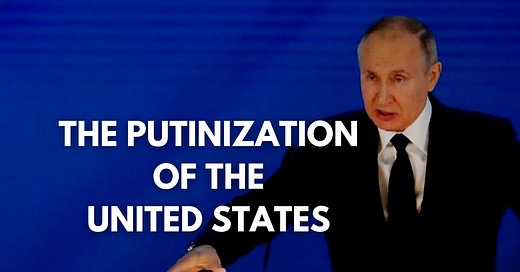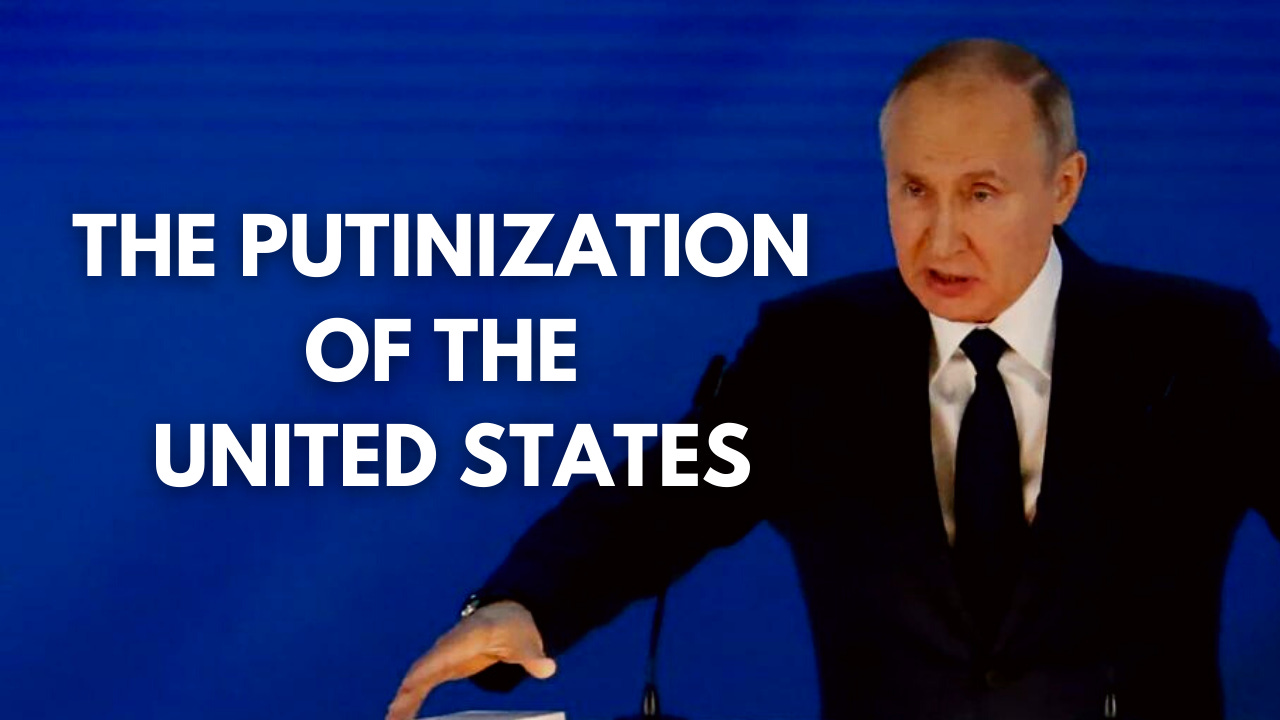The Putinization of the United States
Standing on the precipice of war, the United States faces a myriad of crises, including a growing authoritarian movement that prefers its enemy
As a standoff between the United States and Russia over the fate of Ukraine continues to simmer, something strange but predictable has happened. The American Right, represented by the Republican Party and an assortment of radicalized extremist groups in fatigues and business suits, has already shown a preference for Russia in the dispute. In fact, a recent poll shows that 62% of them prefer Vladimir Putin over Joe Biden, a continuation of a disturbing trend that began with Barack Obama and has only worsened over time.
Messaging in the Right Wing media ecosystem is mixed. There is a growing civil war among the GOP between neoliberal establishment figures like Mitch McConnell and a new “National Conservative” strain that considers Donald Trump the final severing of the united front between economic libertarianism, traditionalists, and evangelicals, as struck in the Cold War-era. Establishment Republicans are calling for a get-tough strategy with Putin while their challengers continue to sow solidarity with the dictator, fomenting a backlash against any opposition to a possible future invasion of Ukraine.
What Congressman Tom Malinowski is dealing with here is far from an accident or an organic, grassroots movement. For years these National Conservatives, even before they had a name to unite behind, have been working overtime to create an anti-democratic movement in the United States, using Putin and other authoritarians as a map for how to gain control over politics and culture and create, in theory, an illiberal state under their control.
The crisis in Ukraine is inextricably linked to the crisis within the United States. Everything from the Presidential Election of 2016 to the growing fissures in our culture and this situation are coming to a head together. How this happened, and what it means for our future, are as traceable as they are disturbing. And if we’re going to make it out of these crises, our own and the one growing on the other side of the world, we’ll have to face the undeniable trajectory of how we’ve reached this moment, and choose another path.





